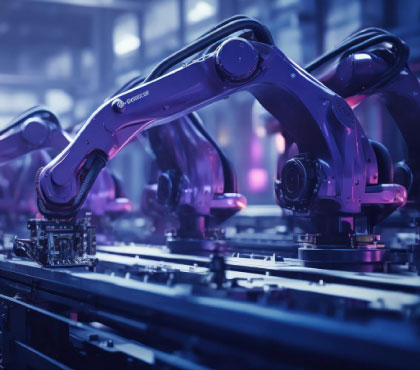Loading
Loading
 omation Systems: Enhancing Efficiency and Innovation in Industry
omation Systems: Enhancing Efficiency and Innovation in Industry
In today's competitive business environment, there is an increasing need for businesses to enhance efficiency and gain a competitive edge through automation systems. Automation systems are technologies used to automate repetitive tasks and optimize processes by minimizing human intervention. These systems are widely used across various industries including manufacturing, logistics, healthcare, energy, and automotive, offering a wide range of applications.
The primary objective of automation systems is to reduce operational costs, improve quality, increase productivity, and minimize errors for businesses. However, automation also offers advantages such as faster response times, more precise control, and increased flexibility.
The use of automation systems in industry requires the integration of various technologies and components. These include robots, sensors, actuators, industrial internet of things (IIoT), artificial intelligence (AI), machine learning (ML), and data analytics. When combined, these components make production processes more efficient, flexible, and scalable.
Advantages of using automation systems include:
Cost Reduction: Automation reduces labor costs and enhances operational efficiency, thus lowering overall business costs.
Quality and Precision: Automation systems increase repeatability and reduce human errors, thereby improving product quality and process precision.
Increased Productivity: Automation enables processes to be carried out faster and more efficiently, leading to increased productivity.
Flexibility and Adaptation: Automation systems can quickly adapt to changing market demands and business requirements, facilitating more flexible production processes.
However, implementing automation systems may pose some challenges. High initial costs, complex integration processes, concerns about data security, and change management regarding human resources are factors that can complicate automation projects. Nevertheless, with the right strategy, appropriate technology selection, and proper training, automation systems can offer significant benefits to businesses and help them gain a competitive advantage.
The future of automation appears to be filled with even smarter, more connected, and adaptive systems. Embracing advanced technologies and continuous innovation will further increase the importance of automation for businesses and accelerate transformation in the industry.